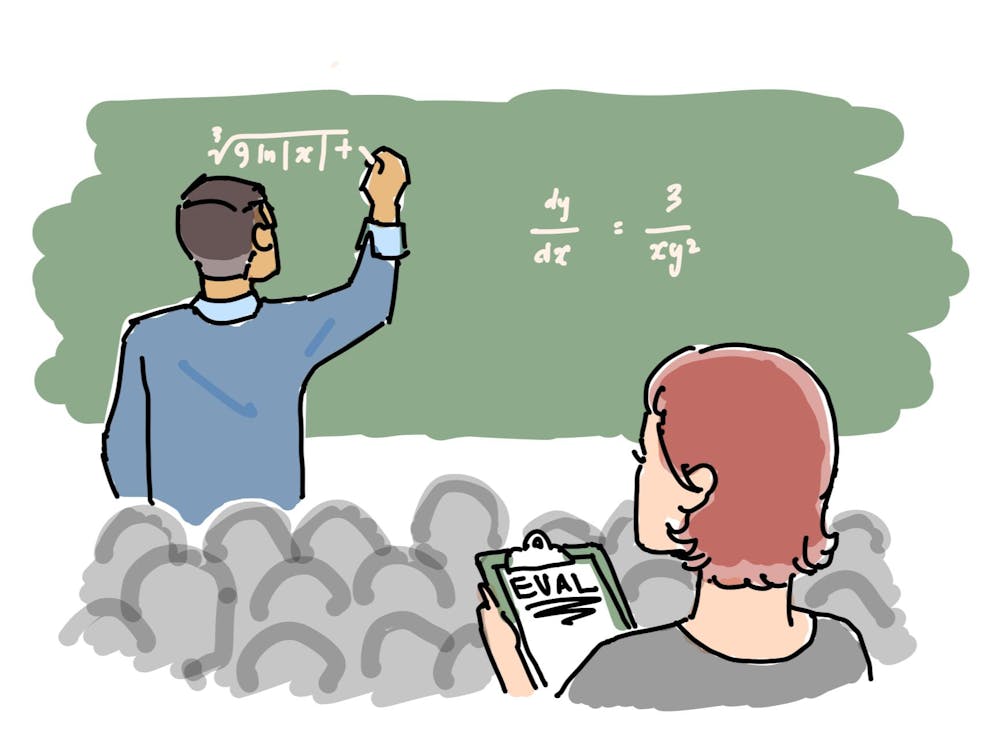While professors go through practice problems in class, some students do more than jot down the answers. These students — the Sheridan Center’s Problem-Solving Fellows — evaluate how the professors are solving them.
Through the PSF program, undergraduate students work with STEM professors, teaching assistants and tutors to reflect on and improve their teaching practices. Each year, between 10 and 16 fellows participate in the program.
The program was created in 2018 as part of the Brown Learning Collaborative, according to Christina Smith, the associate director for undergraduate STEM development at the Sheridan Center. The BLC hopes to help students achieve academic excellence in six key areas: critical reading, research, data analysis, writing, oral communication and problem solving.
Each semester, undergraduate student fellows are assigned to professors, TAs and tutors who request an evaluation, according to Fellow Lauren Roussel ’27. Fellows meet with these individuals to discuss their specific concerns and goals.
Then, fellows attend classes, tutoring groups or conference sections to observe teaching practices, focusing specifically on how instructors promote student engagement. Fellows provide feedback about what went well and what can be improved.
Fellows are required to complete at least one of these consultation projects per semester. The details of individual consultations, including the names of the instructors being evaluated, are kept confidential.
“Most professors aren’t taught how to teach in their studies,” fellow Quinn Cowing ’25 said. “A lot of STEM professors are brought in for their amazing research and may also be super passionate about learning how to profess, but it’s not necessarily a requirement.”
Outside of running consultations, fellows also implement research projects to enhance teaching practices at the University.
Last year, a group of fellows polled the student body about taking courses Satisfactory/No Credit. Fellows have been analyzing the results and writing a paper, planning to present their findings at an intercollegiate conference.
“My hope is that the S/NC project will produce a better understanding of student S/NC decision-making that will then lead to more comprehensive guidance on how to use the system,” said Ava Nemerovski ’25, a PSF fellow who contributed to the project.
In addition to supporting teaching across the University, the PSF program also benefits the fellows, Nemerovski said.
“As someone who is intending on becoming a high school teacher, the program has given me a ton of space to think about and improve my own teaching practice and leadership abilities,” they added.
To become a fellow, students must first take UNIV 1110: “The Theory and Teaching of Problem Solving.” Designed for students in the sciences, the course explores the relationship between problem-solving and teaching, looking to provide students with effective learning and teaching skills.
“There’s a lot of people who never formally learn the skills of how to solve a problem,” Roussel said. “It was a really interesting class for that reason.”
The course is offered every fall. Upon completion, students are invited to apply to be a fellow. If accepted to the program, students attend a training day, where they learn how to consult instructors and build on the skills they learned in UNIV 1110.
“Brown is a place where we’re always trying to get more student voices and student opinions,” Roussel said. The PSF program is a “really good way” to incorporate student feedback in a professional setting, she added.
Smith hopes that more faculty take advantage of the PSFs in the future.
“The PSFs are able to provide a student perspective on teaching and problem sets for faculty and can help their peers think through and improve their teaching,” she wrote.

Leah Koritz is a senior staff writer covering science & research. Leah is from Dover, Massachusetts and studies Public Health and Judaic Studies. In her free time, Leah enjoys hiking, watching the Red Sox and playing with her dog, Boba.





